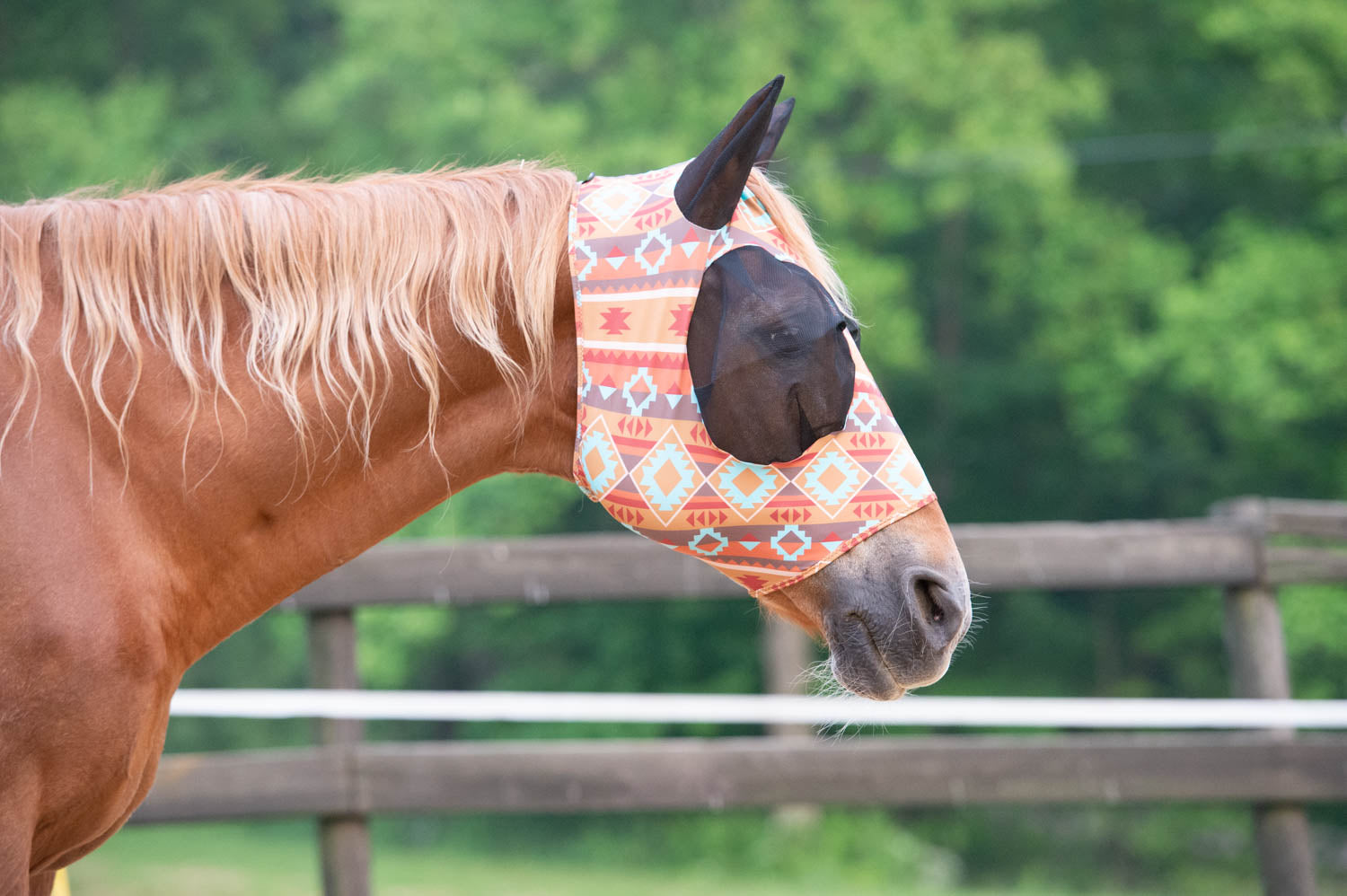If you have horses, you have flies! Flies and other biting insects are constant pests that irritate both horses and riders, especially in the summer months when weather conditions create the perfect breeding ground for flies. These pests can also pose a major health risk with their ability to transmit diseases. Flies live, feed and breed in filth where germs, bacteria and transmissible diseases thrive, which is why fly control is such an important part of every horse care routine.
The obvious answer is, "They are annoying!" and not just to horse owners but their animals as well. However, there are more risks associated with fly populations than just nuisance problems. Flies can transmit pathogens that cause disease or other conditions in horses: for example:
- Stable flies can transmit equine infectious anemia.
- Filth flies can transmit equine stomach nematode worms (Habronema spp.).
- Arthropod hypersensitivity and pruritus (itching) in horses has been linked to biting flies.
- The bacteria that cause pigeon fever, Corynebacterium pseudotuberculosis, can be transmitted by house flies.
- Fecal and other pathogenic bacteria, such as Escherichia coli and Salmonella, acquired by flies can be transmitted to humans when the flies land on residents or household surfaces.
Flies also have a negative impact on horse condition and physiology. Fly pressure may:
- Cause pain and irritation, and cause pest avoidance responses including tail swishing, head and neck movements, and twitching
- Lead to changes in grazing behavior like reduced grazing time and lower forage intake
- Reduce energy available for growth, reproduction, and body condition maintenance
- Increase blood cortisol concentrations, heart and respiration rates, and rectal temperatures
- Cause eye and skin disorders, including allergic dermatitis
Behaviors like constant stomping and movement and reduced grazing can have serious effects on the performance of pastured and show horses and may cause long- or short-term injury or losses of condition. Risks associated with high numbers of both biting and non-biting flies are more than just annoyance. Because of these risk factors, it is important to consider developing an IPM (Integrated Pest Management) plan for fly control.
Some horse owners may not think it’s necessary to use fly masks. Many hate dealing with the stubborn horse that always finds a way to get the mask off. How do you even know where to start when looking for a fly mask?
Fly masks can make your horse more comfortable. We humans can always wave flies away, but horses have a harder time getting rid of them. These masks can also protect your horse from infections like conjunctivitis. Fly masks keep the horse’s eyes guarded against sunburn from harmful UV rays. If your horse is especially sensitive to wind and sun, it’s even more crucial to use a fly mask for added protection.
Granted, picking a fly mask may seem like a challenging task. No two horses are the same, so you should keep your specific equine in mind.
Furthermore, proper fly control also promotes a safer and more pleasant environment for riders and stable staff. By reducing the fly population, horse owners can minimize the spread of diseases and improve overall hygiene in the barn or pasture. Additionally, a comfortable and content horse is more likely to perform well in various activities, whether it's leisurely trail rides or competitive events.
Investing in quality fly control measures like a Lycra® Fly Mask from Weaver Equine is a proactive step towards ensuring the health and happiness of your equine companions. Crafted from lightweight, stretchy spandex material, these masks offer optimum equine comfort, allowing your horse to move freely without restriction. The binding around the edges ensures a perfect fit, while the fine mesh around the eyes and ears provides reliable protection from flying insects while maintaining visibility. With a broad selection of colors and patterns available, you can choose a mask that offers superior protection while complementing your horse's style. Give your horse effective protection against flying insects with a comfortable, stretchy Fly Mask.

